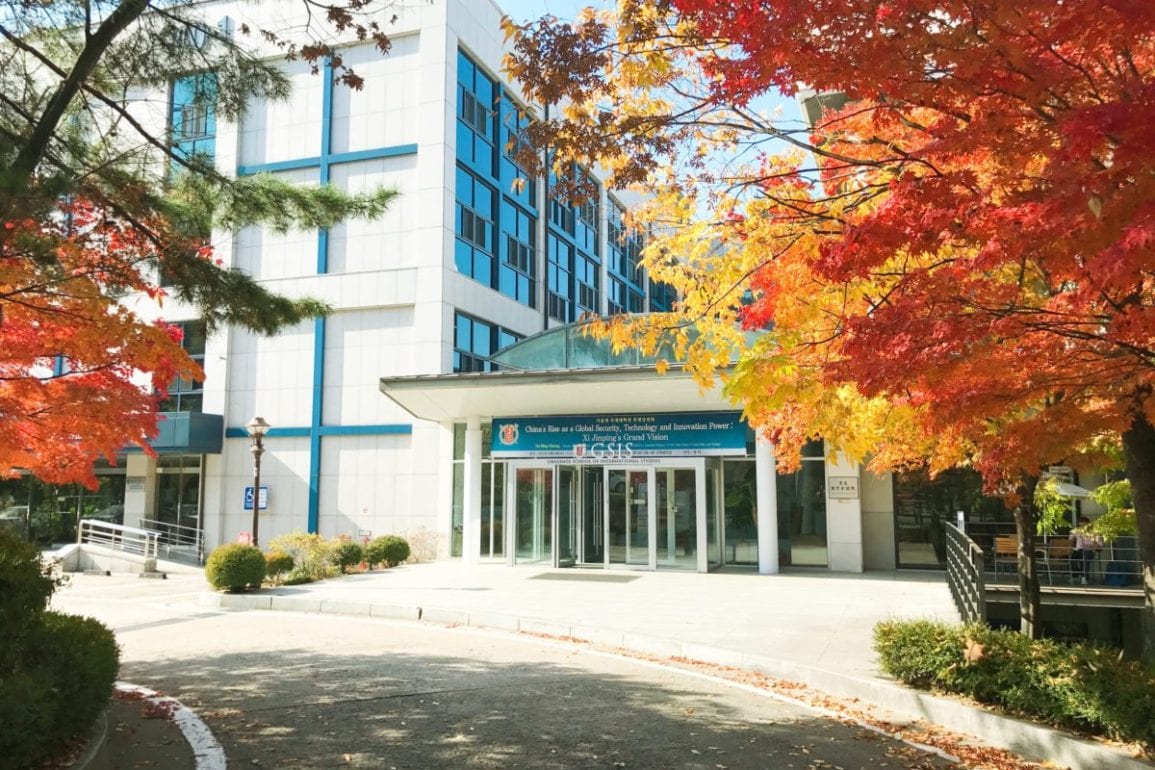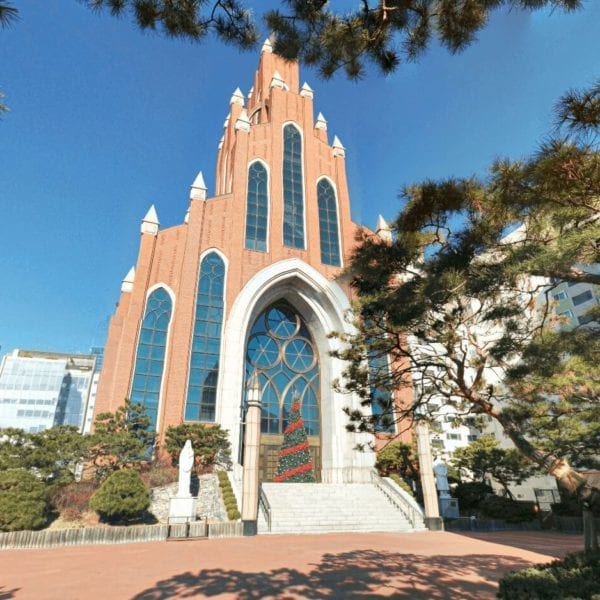International Studies in Korea
Finding a graduate program in South Korea may seem like a daunting task. Korea is known for its large number of universities, so where do you start looking? Also, how do you make sure that the program is taught in English? Most Korean universities do still mostly teach in Korean, so enrolling in most of the graduate programs as a non-Korean speaker might be difficult.
Luckily, South Korea is internationalizing its university curriculum. It recognizes that both native Korean speakers and foreigners are demanding graduate programs in English and many of the universities have started offering classes in English.
The easiest accessible program for English-speakers however, is probably the Graduate Schools of International Studies in Korea (GSIS). This program is offered by all the major universities in Korea and hosts a plethora of foreign students. Like most Master programs in Korea, the GSIS program lasts around 2 years (4 semesters).
The benefits of this program are numerous. Firstly, GSIS programs are ranked amongst the top English programs in the country. Secondly, because of their popularity, the programs are a great mix of both Korean and international students. Thirdly, the programs are broad. You have the option to specialize within your own major, so you can choose to focus on humanities, economics, international relations or any other field that interests you the most. Thus, people from all backgrounds are admitted to the schools.
At 10 Magazine, we’ve created a list of the top 10 most well-known and popular GSIS programs in South Korea.
Seoul National University | Gwanak-gu, Seoul
Seoul National University (SNU) is ranked as the best university in South Korea and its GSIS program is thus amongst the top programs you can get admitted to in Korea . Founded in 1977, it boasts a long history of educating future leaders.
Its motto “think globally, act regionally” aims to inspire students to apply their globally acquired knowledge to local issues. SNU GSIS has a multidisciplinary approach. After choosing your major, you are free to take electives throughout the whole school as well. This allows you to share knowledge with different kinds of people, specializing in different areas.

Areas of Study (Note: All majors are taught in English, but some classes are taught in Korean or Japanese)
- International Commerce
- International Cooperation
- International Area Studies
- Korean Studies (Note: Korean studies majors must be fluent in Korean)
- Development Cooperation Policy Program (special program hosted by governments of developing countries)
Tuition: KRW 3,278,000 per semester
Scholarships: available through SNU and GSIS
Yonsei University | Seodaemun-gu, Seoul
Yonsei’s GSIS is one of the largest GSIS programs in South Korea. It boasts an incredibly diverse staff and student body. Established in 1987, the school has earned the distinction of being a “university to produce international leaders” by the Korean government.
The program is rigorous and multidisciplinary, training its students to become the next generation leaders. Yonsei also has the largest body of international students, which makes up around 57% of the student body.

Areas of Study
- Korean Studies
- International Cooperation
- International Trade, Finance & Management
Tuition: KRW 7,020,000 per semester
Scholarships: Available through both Yonsei and GSIS
Korea University | Seongbuk-gu, Seoul
Korea University’s (KU) GSIS was founded in 1991 and is one of the top GSIS programs in Korea. As one of the oldest universities in Korea, KU has a large global network and numerous resources at its disposal to complement your studies.
Furthermore, KU’s GSIS offers special programs in collaboration with the Korean International Cooperation Agency (KOICA) and other major partners.

Areas of Study
- International Commerce
- International Development and Cooperation
- International Peace and Security
- International Area Studies
- Korean Studies
Tuition: KRW 6,352,000 per semester
Scholarships: Available through Korea University and GSIS
Hanyang University | Seongdong-gu, Seoul
Hanyang University’s GSIS is one of the newer GSIS programs and has a focus not found elsewhere. Unlike the other GSIS programs, Hanyang focuses exclusively on Area Studies, aiming to train students to become local experts. Part of Hanyang’s GSIS curriculum is a Korean language requirement, which needs to be fulfilled before the end of your program. Other than that, all classes are taught in English.

Areas of Study
- China
- Russia
- America
- Korea
- Japan
Tuition: KRW 8,952,000 per year (2 semesters)
Scholarships: Because of its small student body, a high availability of scholarships.
Ewha Women’s University | Seodaemun-gu, Seoul
Ewha’s GSIS is one of the most well-funded GSIS programs in Korea, as it is supported by the Bill & Melinda Gates Foundation and many other organizations. Ewha’s GSIS aims to create the next generation of women leaders, and has a large focus on sustainable development and peace. Ranked the best GSIS by the Korean Ministry of Education, Ewha offers both regular programs and special programs in collaboration with the KOICA.

Areas of Study
- International Trade and Investment
- International Business
- Development Cooperation
- International Relations
- Korean Culture (Korean proficiency required)
- Teaching Korean as a Foreign Language (Korean proficiency required)
Tuition: 6,606,000 KRW per semester (6,204,000 KRW per semester for Korean Studies)
Scholarships: Ewha GSIS offers scholarships every semester.
Sogang University | Mapo-gu, Seoul
Sogang’s GSIS is situated in the hip Sinchon student area. The program is quite small, so the classes are small as well. This has led to high student satisfaction. The curriculum is set up in a way that teachers and students are able to communicate and discuss topics extensively. Sogang University also offers free language classes for foreigners.

Areas of Study
- International Relations
- National Intelligence and Security
- International Trade
- International Finance
- Korean Studies
- East Asian Studies
Tuition: 6,257,000 KRW per semester
Scholarships: Sogang GSIS has many scholarship possibilities for international students.
Pusan National University | Geumjeong-gu, Busan
There are also GSIS programs outside of Seoul, South Korea’s capital. Pusan National University (PNU) offers a GSIS which incorporates a lot of practical education. Located in the dynamic port city of Busan, this GSIS makes use of its location by offering specializations that also focus on logistics. As a public school, like SNU, PNU has low tuition fees and collaborates greatly with the other public universities.

Areas of Study
- International Trade
- International Logistics and Port Management
- International & Area Studies
- Korean Studies
- EU Studies
Tuition: 2,330,000 KRW per semester
Scholarships: A few scholarships are available.
Chung-Ang University | Dongjak-gu, Seoul
Chung-Ang’s GSIS has a strong focus on global affairs and language training. It aims to train students who are internationally competitive in global affairs and foreign languages. It is especially renowned in the fields of trade and finance.

Areas of Study
- Global Affairs and Business
- Global Affairs and Trade
- Advanced Interpretation and Translation (Korean-Russian, Korean-Chinese, Korean-English)
Tuition: 6,323,000 KRW per semester
Scholarships: foreign students receive a tuition fee discount in the first semester. After, there are numerous scholarships available.
Hankuk University of Foreign Studies | Dongdaemun-gu, Seoul
Hankuk University of Foreign Studies (HUFS) is specialized in area studies and languages and so its GSIAS (Graduate School of International and Area Studies) is focused on these areas. Furthermore, it has established a dual-degree program in cooperation with the United Nations. Due to HUFS’ focus on language, students have a wide array of choices in terms of their major. HUFS also offers many more areas than the other GSIS’s.

Areas of Study
- Korean Studies (in Korean)
- Japanese Studies (in Japanese)
- Chinese Studies (in Chinese)
- Indian and ASEAN Studies
- Middle East and African Studies
- Russian and CIS Studies (in Russian)
- European Union Studies
- U.S. and Canadian Studies
- Latin American Studies
- International Development Studies
- U-Peace
Tuition: not listed
Scholarships: Numerous possibilities.
Looking to expand your client base? Hosting an event that our readership would be interested in? Advertise with 10 Magazine.






